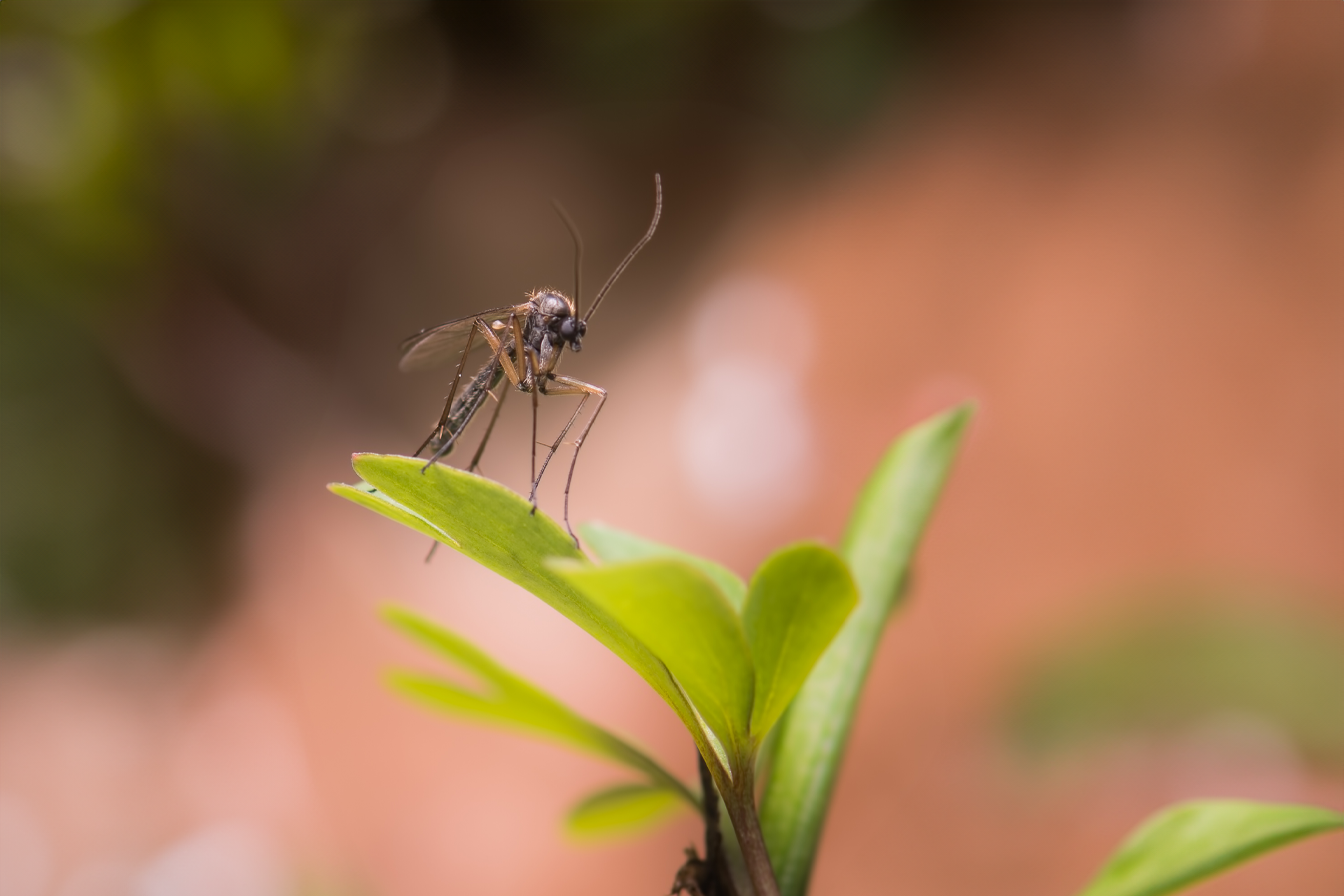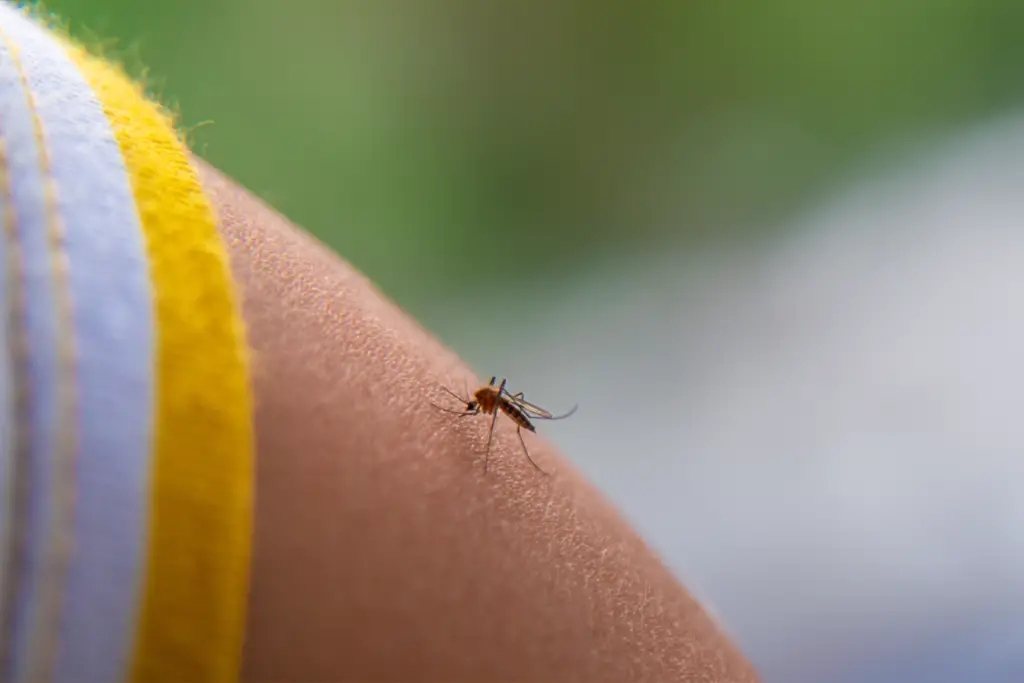
Have you ever wondered why mosquitoes seem particularly interested in buzzing around your ears? It’s not just your imagination; there’s a scientific reason behind this phenomenon. Mosquitoes are attracted to the carbon dioxide that we exhale, and since our breathing is most noticeable around our head, this is where mosquitoes tend to fly.
The sound you hear comes from the rapid beating of their wings. Female mosquitoes, the ones that bite, are tuning into the sound of other mosquitoes as well as homing in on potential blood meals. These pesky insects have a preference for the carbon dioxide plume from our bodies, which is why they often end up near your ears.
Interestingly, there’s also a cultural aspect to the mosquito’s buzz. In various cultures, myths and stories have been spun around the mosquito’s buzz, such as the African folktale retold in the picture book Why Mosquitoes Buzz in People’s Ears. This book, which won a Caldecott Medal, artistically illustrates a story about the chain of events that unfold in the animal kingdom, starting with a mischievous mosquito.
The Cultural Importance of the Story
You’ll discover that this story isn’t just for entertainment but also a means to pass on valuable cultural insights across generations.
Historical Background
Derived from West African folklore, the tale of Why Mosquitoes Buzz in People’s Ears reflects the rich oral tradition of storytelling prevalent in many African societies. These stories commonly used animals to represent human characteristics and convey messages vital to the community.
Moral Lessons
Morals and Ethics: At its core, the story teaches about the consequences of spreading falsehoods and the chaos that ensues from it. For instance, a simple lie from a mosquito sets off a chain of events affecting the entire animal kingdom, illustrating how one individual’s actions can impact many.
Respect and Responsibility: You’ll recognize that the narrative emphasizes the importance of honesty and the duty one has towards others in their community. Such lessons are integral to maintaining social harmony—a principle highly valued in African cultures.
The Science of Mosquito Behavior
Understanding why mosquitoes buzz around your ear involves exploring their anatomy and how they interact with humans. You’ll learn that their behavior isn’t random but driven by a need to survive and reproduce.
Mosquito Anatomy and Sensory Mechanics
Mosquitoes are equipped with sensitive antennas that help them detect carbon dioxide and body heat, which signifies the presence of humans. Their wings beat rapidly, about 500 times per second, producing the characteristic buzzing sound you often hear.
Mosquito Interaction with Humans
Female mosquitoes are the ones that you typically find buzzing around, as they seek blood meals to nourish their eggs. They are drawn to the carbon dioxide and body heat that you emit, which leads them to fly around your head and ultimately towards your ears.
Impact on Literature and Media
Your exploration into the relationship between mosquitoes and people’s ears has more literary and media significance than you might realize. It’s seen through various creative works and educational platforms.
Adaptations and Interpretations
The children’s book Why Mosquitoes Buzz in People’s Ears has been adapted into different formats, bringing the West African tale to life beyond the printed page. Notably, it has been crafted into animated shorts and theatrical performances, each offering a unique take on the story. Here’s how it took shape:
- Animated Shorts: These adaptations often add a visual and auditory layer to the story, emphasizing the rhythmic nature of the narrative.
- Theatrical Performances: On stage, the tale becomes an interactive experience, with different interpretations highlighting the cultural aspects of the original story.
Read more about the book’s history and reach on Semantic Scholar.
Educational Use
Teachers frequently turn to Why Mosquitoes Buzz in People’s Ears for its rich storytelling and moral lessons. In the classroom, the book serves several educational purposes:
- Cultural Awareness: It introduces young students to African folklore, engendering appreciation for global narratives.
- Literacy Skills: The book’s repetitive and accumulative structure helps develop prediction skills and reading fluency.
Moreover, educators use the story to spark discussions about the consequences of actions and the importance of honesty. Teachers’ resources such as lesson plans and activities have been developed to enhance these teaching moments.
Frequently Asked Questions
In this section, you’ll find answers to common questions surrounding the story “Why Mosquitoes Buzz in People’s Ears,” its moral lessons, and how to incorporate it into educational activities.
What is the summary of the story ‘Why Mosquitoes Buzz in People’s Ears’?
This African folktale tells of a mosquito who lies to an iguana, sparking a chain of misfortunes among other animals and leading to an important inquiry by the king lion. It explains the mosquito’s buzzing as a result of this sequence of events.
What is the moral lesson of ‘Why Mosquitoes Buzz in People’s Ears’?
The story conveys several lessons, including the consequences of lying and the importance of communication. Each action in the story is a result of misinformation and misunderstanding, illustrating how small fibs can escalate into major problems.
How can one use ‘Why Mosquitoes Buzz in People’s Ears’ in a lesson plan?
You can use this story to discuss topics like cause and effect, the importance of truthfulness, and the cultural significance of folktales. Activities might include creating storyboards, acting out scenes, or discussing the ripple effect of actions.
Where can I find a read-aloud version of ‘Why Mosquitoes Buzz in People’s Ears’?
Read-aloud versions of this folktale are available online. Platforms such as YouTube often feature storytelling channels where you can listen to the story being read.
What are some good comprehension questions for ‘Why Mosquitoes Buzz in People’s Ears’?
To enhance understanding, you could ask questions like “Why did the mosquito tell the iguana a lie?” or “What was the reaction of the other animals to the iguana’s action?” Questions like these encourage reflection on the story’s events and themes.
How can I stop mosquitoes from buzzing in my ears at night?
To prevent mosquitoes from disturbing your sleep, you might consider using bed nets, applying insect repellent, or installing screens on windows. You can also reduce standing water around your home to lower mosquito breeding sites.
Driven by a passion for those tiny creatures that rule our world, we at Bug Domain strive to be your go-to resource for information on insects.



